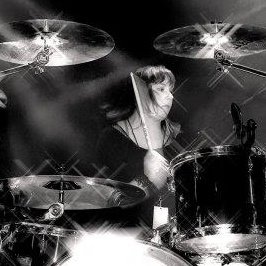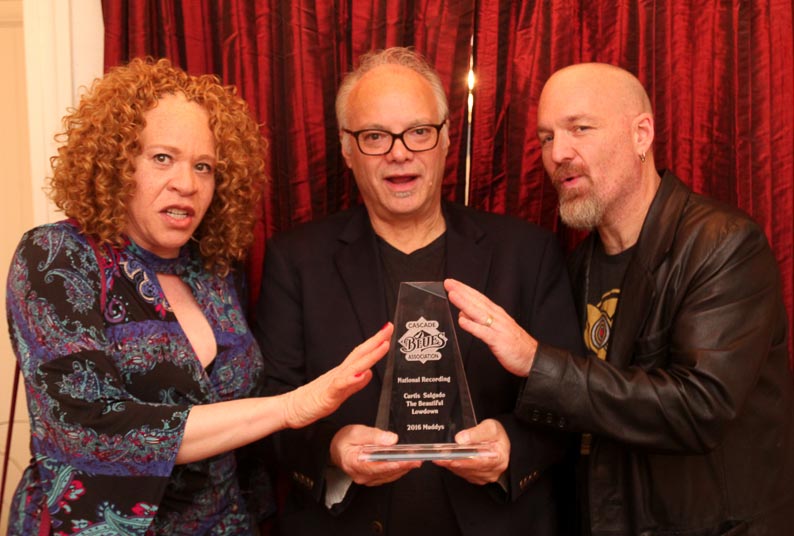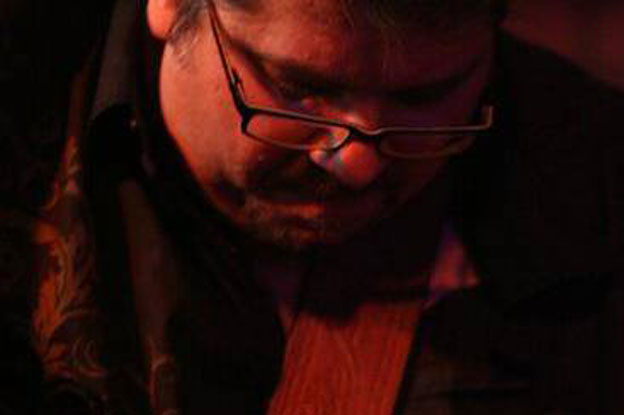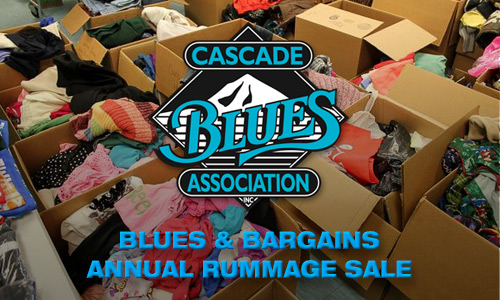
Return to the International Blues Challenge
Beale Street, Memphis, TN
January 30-February 4, 2017
By Jeff Levine
It’s great to be back in Portland, where the trees are green, the politics are blue and the living is healthy. I had the chance to return to Memphis for the 2017 International…

Jolie Clausen is Banging Buckets All Around Portland
By Laurie Morrisey
Who is that gal drumming that crazy beat? None other than the talented Jolie Clausen. Being a performer wasn’t exactly a plan for Jolie, it just sort of happened. “I never thought about growing up—I still don’t! I…

Thank You CBA Volunteers!
The CBA would like to extend a huge thank you to the following individuals who volunteered their time to help us out at this year’s Holiday Party. The CBA greatly appreciates your time and efforts:
Ann McLaughlin
Beverly Jones
Bonita Davis
Bryan…

Trumpeter Joe McCarthy’s Long Journey to the Center of Portland’s Music Scene
Born and raised in Coquille, OR, horn player Joe McCarthy moved to Portland in 1978 and brought his music to the masses. He recently answered some questions so our readers could learn more about him.
How long have you been performing professionally?
Since…

CBA Holiday Party Dec. 11th!
The annual CBA Holiday Party is set for Sunday, Dec. 11, at the Moose Lodge, 16411 NE Halsey, Portland, and it is open to everyone, so bring your family and friends and have some fun. The lodge members are really excited to share their place…

Thank You CBA Volunteers!
Beginning this month in BluesNotes, the Cascade Blues Association will recognize the dedicated volunteers who stepped up during the previous month to assist at our events.
The CBA would like to extend a huge thank you to the following individuals…

2016 Muddy Awards — A Night To Remember
The Cascade Blues Association’s 28th Annual Muddy Awards was held on Wednesday, November 2 at The Melody Ballroom to once again another full house of fans and musicians. Honoring those acts, performers, venues, events, recordings and performances…

AC Porter is a Live Wire on the Portland Blues Scene
By Laurie Morrisey
AC Porter is quite the character. In addition to being a great musician, when asked where he was born and raised, he responded, “I was born under the third ring of Saturn at a planetarium in Stockholm. Wait, that’s where…

Portland’s Heritage of Amazing Youth Blues Musicians Continues with Timothy James
The usual interview questions don’t work too well when talking to Timothy James. “Did you always want to perform professionally or if not, what did you want to be when you grew up?” 14-year-old Timothy’s response was, “I didn’t…

Thanks For Helping At The CBA Rummage Sale
By Cherie Robbins, Rummage Sale Chair
The Cascade Blues Association is a 501(c)3 non-profit organization dedicated to the preservation and promotion of blues and roots music in the Great Northwest. Formed in 1986, the CBA has since become one…
